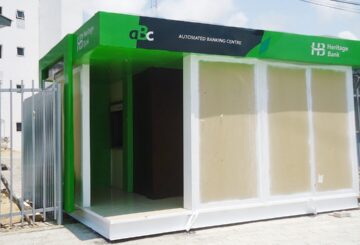 THE World Bank at the weekend, warned that slow global growth and sluggish investment in Nigeria and other developing countries would most likely increase poverty and frustrate its goal for poverty alleviation.
THE World Bank at the weekend, warned that slow global growth and sluggish investment in Nigeria and other developing countries would most likely increase poverty and frustrate its goal for poverty alleviation.
World Bank Group President David Malpass, who gave the warning at the Peterson Institute for International Economics, Washington, DC, United States, said the distributional impact of slower global growth and frozen capital will add to inequality, undercutting the bank’s mission of shared prosperity and rising median incomes.
He said the world was already facing slowdown in growth, slowdown in investment, and frozen capital.
Malpass said the global slowdown is apparent, adding that in June, the World Bank Group’s Global Economic Prospects (GEP) report lowered estimate for this year’s real global growth to 2.6 per cent.
“Given recent developments, I expect actual growth to fall short of that. In nominal terms, dollar gross domestic product (GDP) growth looks set to slow to less than three per cent in 2019, a big letdown from six per cent growth in 2017 and 2018. World dollar GDP reached $84.7 trillion in 2018, of which the U.S. was $20.6 trillion, China $13.6 trillion, the combined five biggest European Union (EU) economies (Germany, the UK, France, Italy and Spain) $13.1 trillion and Japan $5 trillion.
“The slowdown in global growth is broad based, including slowing growth in China, substantial downturns in Argentina, India, and Mexico, and disappointments in much of the developing world. Some parts of Europe are in recession or close to falling into recession. Germany and the United Kingdom have experienced a quarter of recession, and Italy and Sweden have seen several quarters of stagnation,” he said.
The World Bank chief said global investment growth decelerated after the global financial crisis from an average of about six per cent between 1992-2007 to about four per cent between 2010 and 2018.
It said in emerging market and developing economies, average investment growth slowed from about 10per cent per year during 1992-2007 to below six per cent during 2010-2018. Excluding China, average investment growth in other emerging market and developing economies was only about four per cent between 2010-2018 period.
Malpass said at the same time, over $15 trillion of bonds have zero or negative yields, with some new issues carrying negative yields over the long term. This frozen capital implies slower future growth. In economic theory, yields should be related to the cost of capital and anticipated return on investment. Low or negative bond yields mean that many pools of capital are accepting the market’s premise of very low or even negative returns for years, even decades.
“Lack of debt transparency and unsustainable debt loads are problems in a number of countries, especially in Africa. The lack of clean water, dependable electricity and access to roads, basic health care and education still plagues many of our clients.
“For many emerging markets, the availability of global capital puts added emphasis on reforms that strengthen capital markets and attract capital from their diaspora, who are often the most eager to invest when improvements occur and the most aware of meaningful progress,” Malpass said.



